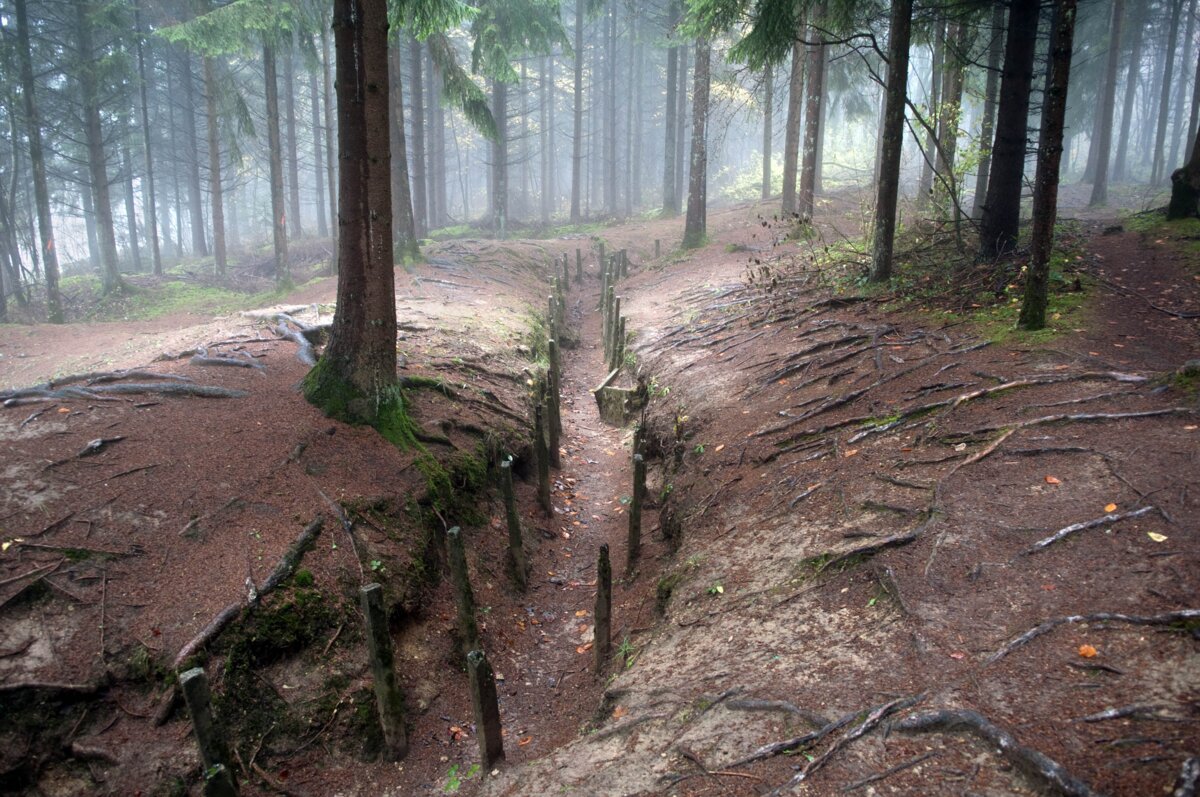
Enlargement : Illustration 1

Verdun national forest, in the Lorraine region of north-east France. The forest covers 10,000 hectares, and was partly replanted after a ten-year operation to remove ordnance. However, it is still today littered with unexploded shells, millions of pieces of lead shot and bullets. The gradually-corroding munitions buried here contain toxic metals and explosives, including fulminate of mercury used in percussion caps. In 2004, France’s national forestry office, the ONF, carried out a study of the livers of wild boar hunted in the forest and found that 10% were highly contaminated by lead and cadmium poisoning. The forest contains several natural water sources that are collected and used for the supply of tap water. There has been no study of the effects these may have had on the health of the local population.
Portfolio
The Great War time bombs scattered around France
1 photo
This year marks the 100th anniversary of the start of World War One (WWI), when numerous commemorations will be held on the former battlefields of north-east France in tribute to the more than nine million combatants who died during the conflict. The war toll was one of the worst in history, due in part to the emergence of a massive weapons industry. At the end of the war in 1918, huge amounts of unused munitions, including highly toxic ordnance, were hurriedly disposed of in France, buried or sunk in natural sites, while former battlefields which contained unexploded and abandoned munitions were simply sealed off. Many of these remain scattered around France today, where the corroding arsenals pose a serious threat to the health and safety of local populations and surrounding environments, as illustrated in this photo-reportage by Olivier Saint Hilaire.



